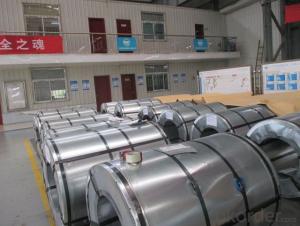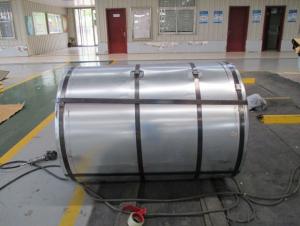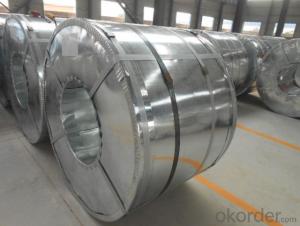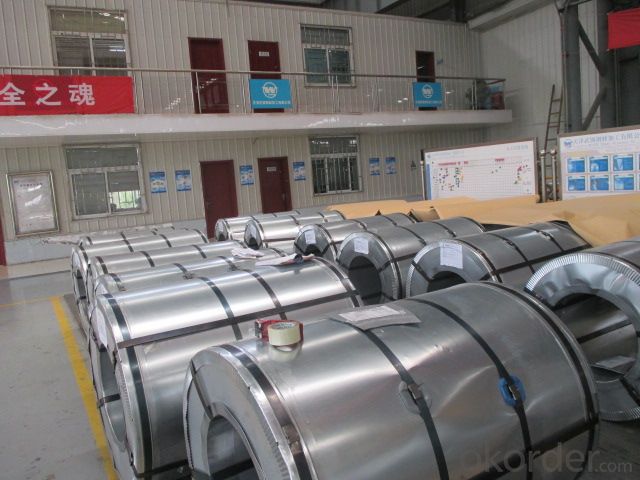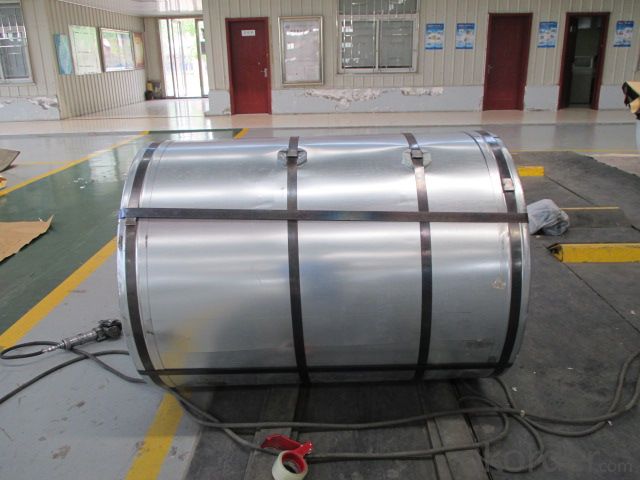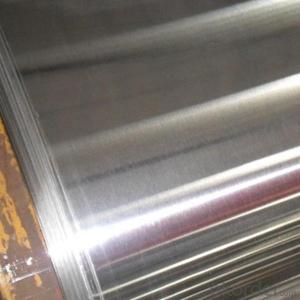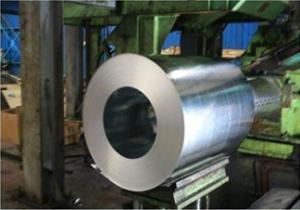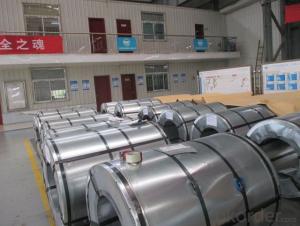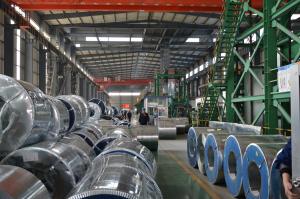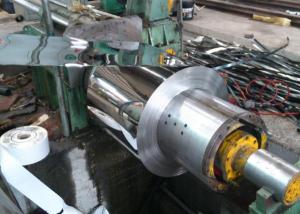STAINLESS STEEL COILS
- Loading Port:
- China Main Port
- Payment Terms:
- TT OR LC
- Min Order Qty:
- -
- Supply Capability:
- -
OKorder Service Pledge
OKorder Financial Service
You Might Also Like
STAINLESS STEEL COILS
Packaging & Delivery
Packaging Detail: seaworthy export package
Delivery Detail: on request
Specifications
1. more than 10 years’ experience on this field
2. advanced equipments
3. competitive price
4. soonest delivery
Product Description :
Commodity
STAINLESS STEEL COILS
Technical Standard: Steel Grade &Standard:J1
Surface Treatment:NO.1
Hot rolled Annealed and Pickled(HRAP)
Grade: J1 , Prime quality
Mill Edge. No connection point in each coil.Component: Ni:1% , Cu: 0.65-0.9%, Cr: 13%, Mn: 10–12%, C: 0.09-0.12%
Package:Properly packed for ocean freight exportation in 20''container
Application::home appliances, constructions, building, machineries
Our Advantages :
1. Expertise:
More than 10 years of manufacture: we know how to properly handle every step of production.
2. Competitive price:
We can offer competitive prices to our customers.
3. Accuracy:
We have excellent technicians and leaders, which can ensure our products are exactly what you want.
4. Materials:
All steel coils are made of high-quality raw materials.
5. Certificate:
Our products are certified by ISO9001.
6. Productivity:
We have large-scales of production lines,, which can guarantee all your orders will be finished in earliest time.
The furnace heating style: improved Sendzimir heating technology
Hourly output: max.76.3t/h
Process after coating: tension leveling, Passivation or oiling
Our Service
Our quality
Test Equipments of Prepainted Galvanized Steel Coil : Salt-spray tester; Atomic absorption spectrophotometer; Rockwell typer hardness tester; Tensile test machine; Metrohm titration; Laboratory Bend test machine.
Our packing
Properly packed for ocean freight exportation in 20''container, galvanized metal fluted rings on inner and outer edges, galvanized metal & waterproof paper wall protection disk, galvanized metal & waterproof paper around circumference.
R&D department
R&D department concentrates on researching and developing reliable products with best quality. The quality department test and control every process of production to guarantee the best quality of product
- Q: What metals contain steel? It can be anything except soft iron or steel.
- tricky situation. look from google. it may help!
- Q: so i've started learning to play guitar in the past few weeks, and i'm using my sister's old guitar which isn't in very good condition, so i'm planning on buying a new one, but which would be better to buy, nylon string or steel string?
- it all depends nylon is faster, and brighter than steel, but is available only on acoustic as coil pickups won't detect them(only peizo will). That is one reason. Another is price, you tend to replace the nylon more often as it is weaker, and less resistant to corrision. EVEN THOUGH strings have a larger price range, and be cheaper than steel, or considerably more expensive. overall the nylon is brighter, but quite-er. Steel is louder, but deeper. nylon doesn't get feedback as easily, and is amazingly fast and easy to play. some think nylon sounds old fashoined(it looks it too, with an open headstock, ond classical look(sometimes mistaken as another name for it). MY SUGGESTION- visit your local music shop and try out steel, and nylons to in person get a feel for the sound.(remember that you get what you pay for, go as high in price as you can reasonably afford) ALWAYS TRY BEFORE YOU BUY, PLAY BOTH TYPES IN THE SAME RANGE OF PRICE(at least $400), THEN DECIDE WHAT SOUNDS BETTER TO YOU(and of course feels better and easier to play).
- Q: Can steel coils be coated with anti-microbial materials?
- Yes, steel coils can be coated with anti-microbial materials to provide protection against the growth of bacteria and other microorganisms.
- Q: What are the common coil widths available for steel coils?
- The common coil widths available for steel coils typically range from 24 inches to 72 inches, with 36 inches and 48 inches being the most common options.
- Q: How are steel coils inspected for defects after recoiling?
- Steel coils are inspected for defects after recoiling through a thorough visual examination and non-destructive testing techniques such as ultrasonic or magnetic particle inspections. These methods identify any surface imperfections, cracks, or abnormalities in the steel coils to ensure their quality and integrity.
- Q: How are steel coils used in the manufacturing of industrial equipment?
- Due to their versatility and strength, steel coils find common application in the manufacturing of industrial equipment. Typically crafted from high-quality steel, these coils are shaped into a coiled form for convenient transportation and storage purposes. One of the primary purposes of steel coils in the manufacturing of industrial equipment is the creation of structural components. Often, these coils are cut, shaped, and welded to produce various parts and structures that offer support and stability to the equipment. For instance, frames, beams, and brackets, which serve as the backbone of heavy machinery, can be constructed using steel coils. Moreover, steel coils are utilized in the production of mechanical components like gears, shafts, and bearings. These components necessitate high strength and durability to withstand the demanding loads and harsh conditions encountered in industrial settings. By employing steel coils, manufacturers can ensure that these parts possess the requisite strength and resilience for reliable performance. Additionally, steel coils are incorporated into the manufacturing of equipment surfaces that require corrosion resistance or aesthetic appeal. Steel with specific coatings or finishes can be rolled into coils to create sheets or plates, which are employed in constructing outer casings, panels, or covers for industrial equipment. These coatings not only protect the equipment from environmental factors but also enhance its visual appeal. Furthermore, steel coils can be transformed into pipes and tubes, which are essential components in numerous industrial applications. These pipes serve the purpose of transporting various fluids, gases, or materials within the equipment. The strength and structural integrity of steel coils guarantee that the pipes can endure high pressure, temperature, and mechanical stress, rendering them suitable for demanding industrial environments. In summary, steel coils occupy a vital role in the manufacturing of industrial equipment. They are utilized in fabricating structural components, mechanical parts, surface finishes, and pipes. The versatility, strength, and durability exhibited by steel coils make them the preferred choice in the industrial equipment manufacturing industry.
- Q: How are steel coils priced?
- Steel coils are priced based on various factors including the current market demand and supply, raw material costs, production and processing expenses, transportation and logistics costs, as well as any additional charges or fees imposed by the manufacturer or supplier.
- Q: What are the pros and cons of non-stick and stainless steel pots and pans ?Thanks
- Non stick doesnt stick but after time the non stick doesnt stay non stick and then time to replace Stainless steel. some things may not stick but its best to put down a little pam, or cooking oil, and or aluminum foil
- Q: How are steel coils tested for tensile strength?
- Steel coils are tested for tensile strength through a process called tensile testing. In this method, a small sample is taken from the steel coil and subjected to a controlled force until it breaks. The force applied during the test is gradually increased until the sample fractures. The maximum force required to break the sample is measured, and this provides valuable information about the tensile strength of the steel coil.
- Q: What are the common processing defects in steel coils?
- The common processing defects in steel coils include surface imperfections such as scratches, dents, and stains, as well as edge wave, coil set, camber, and crossbow. Other defects may include coil breaks, oil spots, rust, and uneven thickness or width variation.
Send your message to us
STAINLESS STEEL COILS
- Loading Port:
- China Main Port
- Payment Terms:
- TT OR LC
- Min Order Qty:
- -
- Supply Capability:
- -
OKorder Service Pledge
OKorder Financial Service
Similar products
Hot products
Hot Searches
Related keywords
